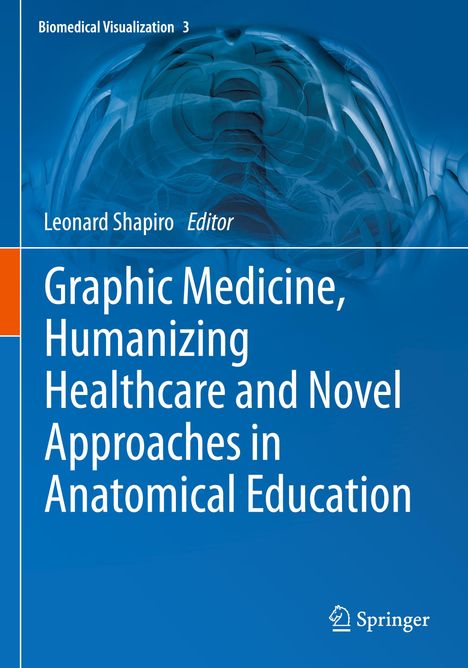Graphic Medicine, Humanizing Healthcare and Novel Approaches in Anatomical Education, Kartoniert / Broschiert
Graphic Medicine, Humanizing Healthcare and Novel Approaches in Anatomical Education
(soweit verfügbar beim Lieferanten)
- Herausgeber:
- Leonard Shapiro
- Verlag:
- Springer, 09/2024
- Einband:
- Kartoniert / Broschiert, Paperback
- Sprache:
- Englisch
- ISBN-13:
- 9783031390371
- Artikelnummer:
- 11976211
- Umfang:
- 264 Seiten
- Gewicht:
- 503 g
- Maße:
- 254 x 178 mm
- Stärke:
- 15 mm
- Erscheinungstermin:
- 25.9.2024
- Hinweis
-
Achtung: Artikel ist nicht in deutscher Sprache!
Weitere Ausgaben von Graphic Medicine, Humanizing Healthcare and Novel Approaches in Anatomical Education |
Preis |
|---|
Klappentext
This book contains subjects by authors with a fresh, exciting and extensive focus within the medical humanities, offering the reader chapters which include the history of medical illustration, Graphic Medicine as a vehicle for the expression of humanistic dimensions of healthcare, equitable and ethical medical illustrations, as well as novel, art-based approaches in anatomical education.
Authors consider the role of visual narratives in medical and scientific illustration, the unique affordances of the comics medium, the history of comics as a form of medical and scientific visualization, and the role of comics as didactic tools and as vehicles for the expression of the humanistic dimensions of healthcare. A chapter considers ethical and equitable implications in global healthcare practice, and highlights the work currently being undertaken to address inappropriate and problematic depictions of people in global health visualizations. This will inform the reader of emergingand current thinking about visual communication and the use of images in the public domain, as well as in the healthcare and education sectors. Novel approaches in anatomical education include the benefits of three-dimensional anatomy models made of felt, visual analogies as a method to enhance students¿ learning of histology, the use of the hands for learning anatomy, and visualizing anatomy through art, archaeology and medicine.
This book will appeal to readers who have an interest in the medical humanities, Graphic Medicine, and ethical medical and anatomical illustrations. These include academic and non-academic readers, medical students, medical educators, clinicians, health-care workers, as well as policy makers.


